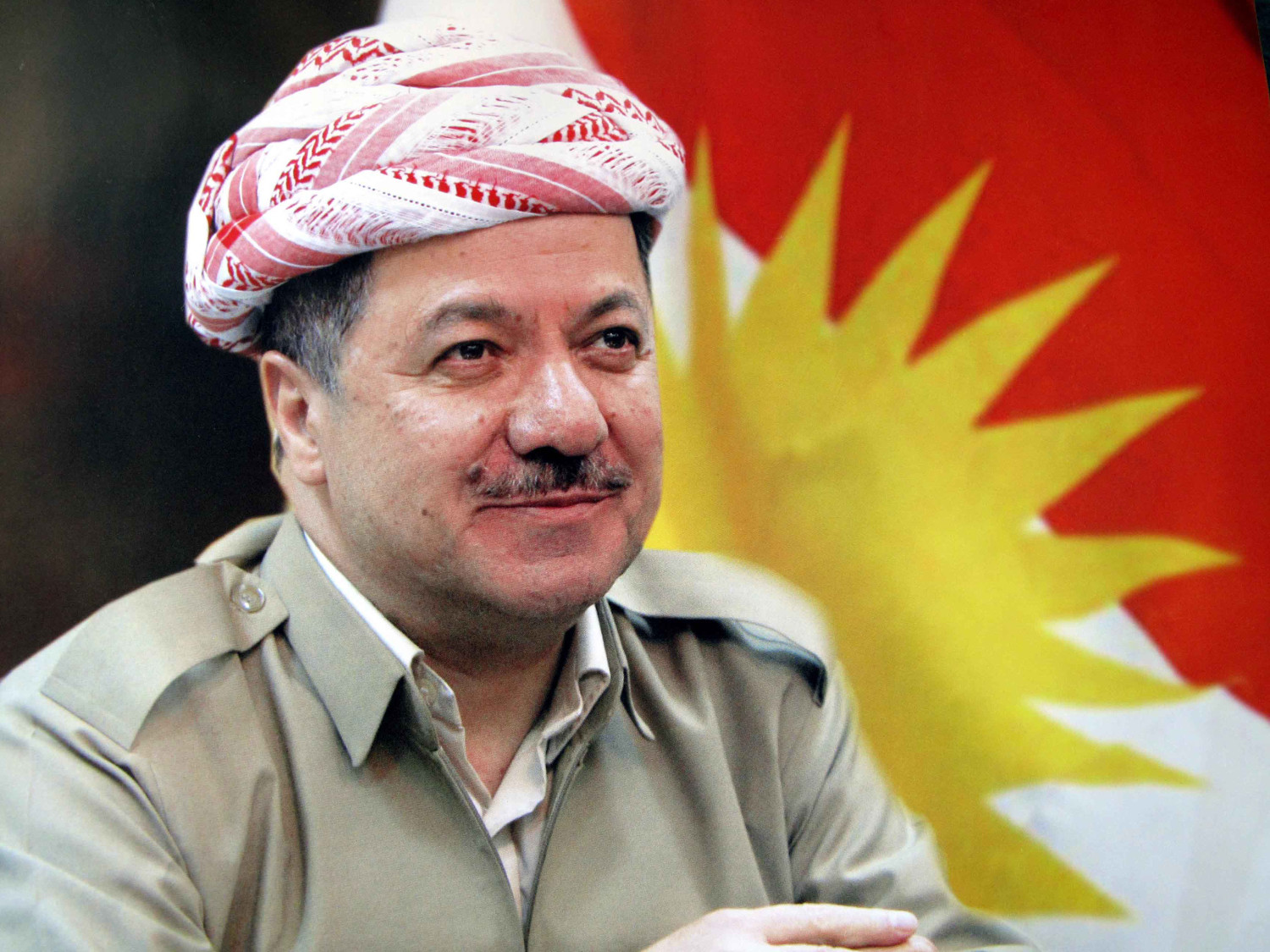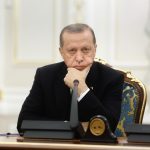by Robert Olson
In this piece I want to address further the topic of the situation of the Kurds as embedded in the evolving geopolitics of the Middle East, especially Turkey.
In the Jan. 17 edition of this newspaper, I quoted the Dec. 17, 2015 International Crisis Group report that said the policy of Turkey, or at least of the Justice and Development Party (AKP), was “to bypass the most prominent Kurdish actors Abdullah Öcalan, the Kurdistan Workers’ Party (PKK) and the Peoples’ Democratic Party (HDP), in favor of alternative groups, including class structures, religious groups, smaller parties and middle class business circles.” The term “class structure” was apparently a reference to the lower middle class and lower classes of both Turks and Kurds who are tired and exhausted by the war between the Turkish state, Kurdish nationalist movements, and whatever classes or groups support them directly or indirectly, such as Turkish liberals and academics in particular.
The AKP also hopes to gain even more support than they received in the Nov. 1, 2015 election from the religious classes, whether Turkish or Kurdish, but especially from Kurds. This is apparently what Murat Yetkin was referring to in his article in Hürriyet Daily News on Jan. 20, 2016, when he quoted President Recep Tayyip Erdogan as saying that “the people of the Southeast” have been sending messages to Ankara that the fight against the outlawed Kurdistan Workers Party [PKK] should “go on until the end.”
The reference to “religious groups” was an apparent reference not just to Turks, but also to Kurds of the Shafi’i and Hanefi schools of thought and Alevis, as well as Kurds who support the Hüda-Par extremist, largely Kurdish, political party and Kurds supporting the Village Guards (Köy Koruculari). The Turkish armed forces were sufficiently confident of the latter to deploy some of them to the fighting in the city of Diyarbakir. The most important statement from AKP officials was that they intend, or think they will be able to persuade or, even better, co-opt some elements of the Kurdish bourgeoisie in Diyarbakir, the Southeast and throughout Turkey. It is important to note that 9.5 million of the estimated 19 million Kurds in Turkey live outside the 15 provinces (iller) of the Southeast.
As quoted above, Erdogan thinks that the “people of the Southeast” want the Turkish armed forces, the National Intelligence Organization (M?T), national police, special teams and Esadullah (Islamist) forces to “go to the end,” meaning to completely emasculate the PKK, the Kurdistan Communities Union (KCK) and the HDP, if possible. If the AKP was to decide to once again go to elections, it is possible, indeed probable, that the HDP would not be able to achieve the 10 percent threshold necessary to sit in Parliament. If another election were to occur, not just the HDP, but even the Nationalist Movement Party (MHP) might not pass the 10 percent threshold. If either of these developments were to take place, the AKP would be home free to establish a presidential system. If such a system were to be created, it seems clear from the above analysis that all Kurdish political organizations, with the exception of those acquiescing to the AKP, would be completely marginalized in Kurdish political life.
No Room for Kurdish Demands
There would certainly not be room for policies or demands of self-government, self-defense or decentralization. Decentralization has been one of the demands of Kurdish political parties since at least 2007. It is clear from the events of the past eight months that Turkey’s objective is to prevent the above from happening.
In order to accomplish the above, it is also necessary for Turkey to weaken the Democratic Union Party (PYD) and its armed wing the People’s Protection Units (YPG), or even to destroy the YPG as an effective fighting force and sever its relationships with the PKK/KCK.
The challenge to Turkey and the AKP is whether or not, and to what extent, this will be allowed by the International Syria Support Group (ISSG) in its war against the Islamic State in Iraq and the Levant (ISIL). It has been noted in the Turkish press by Cengiz Çandar (Radikal, Feb. 3) that Turkey faces challenges to the above stated policies in that the US is opposed to Ankara’s policies toward the YPG and the 50,000 armed forces that it now commands in the guise of the Syrian Democratic Forces (SDF), the Quwwat Suriya al-Demuqratiya (QSD) in Arabic and the Hezwen Suriya al-Demokratik (HSD) in Kurdish, which includes large numbers of Arabs, Arameans (Syriacs), Armenians and Turkmen.
For its part, Turkey’s Foreign Minister Mevlüt Çavusoglu has stated that Ankara might be able to accept the PYD as an interlocutor, much like the AKP tolerates, unwillingly, the presence of the HDP in Parliament. However, this acceptance does not extend to the YPG as Ankara considers it a terrorist organization like the PKK.
It is clear from Çandar’s report that Special Presidential Envoy for the Global Coalition to Counter ISIL Brett McGurk, along with officials from the United Kingdom and France, visited the leadership of the PYD/YPG on Jan. 30-31 to discuss the role the YPG had in the upcoming battles against ISIL around Raqqa and Aleppo (the two cities where the SDF are sending deployments of men with cooperation from Russia and the ISSG). Of course, Iran is important as well, but it has no air force in Syria.
The challenge and conundrum for Ankara are to what extent it can tolerate the increasing importance of the PYD/ YPG. It was able to prevent their admission to the Geneva III talks by threatening to boycott the talks if the PYD/YPG were admitted. But despite this rejection, Salih Muslim, the leader of the PYD still went to Geneva, and by all accounts he was listened to by officials at the talks, including Staffan de Mistura, the UN official heading the talks. Muslim seemed satisfied with what McGurk told the PYD/YPG officials in Rojava and what de Mistura told him in Geneva. It seems to have been decided that the PYD/YPG will be approved attendance to the International Syria Support Group (ISSG) in Munich on March 11. We shall see.
The big question is: Will the ISSG, with whatever promises it makes to the PYD/YPG, be able to persuade Ankara that it is in its interest to allow the PYD/YPD-led SDF to play a major role in the fight against ISIL and to allow it in regions so close to the Turkish border? Will Ankara’s war on or even defeat of the PKK/KCK in southeastern Turkey help prove Turkey and the AKP’s belief that the YPG, like the PKK, is a terrorist organization just like ISIL, a group the ISSG has declared war against?
There is an even bigger problem between the ISSG and Ankara. The bigger problem is that the major geopolitical threat, as Ankara and the AKP see it, is the challenge of not just the PKK/KCK but of a number of Kurdish nationalist organizations in Turkey and, indeed, large portions of Kurdish society at large. This includes increasing levels of dissatisfaction among Turks and disgruntlement among current as well as former officials of the AKP, such as Bülent Ar?nç, one of the principal founders of the AKP, that have differences with Erdogan over a number of issues. One of these issues is how do deal with Kurdish challenges.
US Definition of Terrorism
Ankara must realize that the major concern of the US and the coalition against ISIL is of terrorism, as they define it, and not Ankara’s polices of subduing Kurdish nationalism in whatever form it exists or might materialize from. Another concern must be the realization that not just Syria but all Middle Eastern countries, including Saudi Arabia, are of lesser importance among US global geostrategic considerations than five years ago when the civil war in Syria commenced, although for global security issues, especially regarding oil and gas reserves, it remains significant. However, this could be said with or without the Saudi dynasty in charge. Apart from Saudi Arabia, Israel and Turkey are the most important countries for the US.
Turkey has other major concerns with Russia and its defense of the Bashar al-Assad regime. Besides the regional and geopolitical concerns Turkey has about Russia, such as its opposition to almost all Muslim nationalist movements in Russia, the Caucasus, Central Asia and the Middle East, is Russia’s opposition to other Turkish policies.
Turkey must deal with the probability that relations between Ankara and Moscow will become more strained and that Russia might support Kurdish nationalist movements with greater strength, much like they did during the 1990s when Turkey was supporting the Chechens. It must be concerning to Ankara that the PYD/YPG leadership seeks good relations with Russia, the US, ISSG and the al-Assad regime. Russia’s aerial bombardment of areas and towns in northwest Syria continues to send more refugees into Turkey.
For the time being, Turkey probably finds some succor in the fact that the Kurdistan Regional Government (KRG) is aligned with Ankara for economic and political reasons. Indeed, Ankara might even support President Masoud Barzani’s recent announcement that the KRG will have a referendum as to whether or not Iraqi Kurds want independence. Given the close relationship between Ankara and Arbil, it seems obvious that Ankara, if not publicly, will support the referendum.
In the fast changing developments in the Middle East, the KRG is now in control of 14 to 15 percent of Iraq, including valuable oil and gas fields, and it needs Turkey to be able transport the oil and gas to markets. The KRG will also be a valuable ally to Turkey in Ankara’s efforts to control or even destroy the PKK/KCK as effective organizations. In return, Ankara will aid the Kurdistan Democratic Party (KDP) in projecting its power to Rojava.
It will be interesting to see whether Ankara deems the threat from the PYD/YPG and its relationship with the PKK/KCK strong enough to attack the PKK strongholds in the Kandil Mountains with the solid support of the KRG/KDP. And whether it thinks the threat big enough for it to move forces into Syria in the next two or three months.
Such a development would put the US-led ISSG, especially Western European countries, even more at odds with Turkey, a NATO member and a bulkhead against further flows of Syrian refugees to Europe. Such a development would also be a test for the international community, including the UN, NATO and the US-led ISSG, which claims it is fighting a “war against terrorism,” while a NATO country and EU applicant defends what it declares are its vital national security interests against terrorist organizations.
Photo: KRG President Masoud Barzani courtesy of Jan Sefti via Flickr
This piece is republished, with permission, from Today’s Zaman.






Erdogan and Barzani make for very good bed fellows. I would not trust either of them at all.
Erdogan is a real terrorist and the prospect of his evil regime receiving 3 billion euros from the EU is utterly insane. Who says Turkish crimes do not pay? Just ask his son and son-in-law.
The west would be far better off working with Putin and al-Assad on resolving this situation.